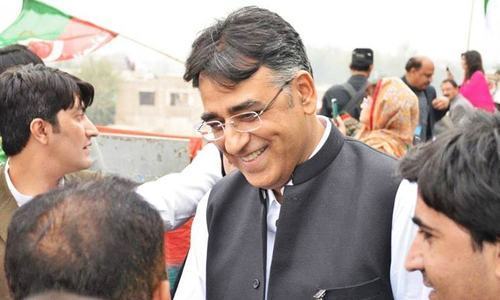AS Prime Minister Imran Khan makes a strenuous effort to overcome the challenging teething problems he is facing in implementing the PTI’s 100-day plan, Finance Minister Asad Umar remains caught up in trying to ease mounting pressure on the external sector.
As a consequence, the only noticeable part of the PTI’s manifesto that featured in the recent mini-budget was a paltry allocation of Rs4.5 billion for construction of 8,276 low cost housing units against the over-ambitious target of 5 million units planned for five years.
However, the government’s project will receive support from a $145m housing loan approved by the World Bank in March and the recent State Bank policy decision to ensure easier and affordable access to finance for construction of low cost housing units.
Just before the PTI came into power, the State Bank of Pakistan (SBP) had set a target to increase the current housing finance portfolio of Rs83bn to Rs250bn by the year 2021 and raise the number of borrowers to 200,000 from the existing 68,000.
The ambitious PTI agenda and its mode of implementation need a reality check to discover the way forward
To encourage commercial banks, which prefer financing housing units built or purchased by high income individuals, the central bank will provide a subsidy on mortgage-finance extended for low cost-housing.
Apparently the task force on construction of 5m low cost housing units has not moved with the speed PTI anticipated in giving its recommendations. In fact, the 48-hour, days and weeks deadline given to the various task force(s) for finalising their recommendations for long-term plans have yet to yield fruitful results.
No doubt the PTI-led coalition government has shown great agility during the first few weeks of its tenure in trying to grapple with deep-seated macroeconomic and governance problems, but its attempts have not been convincing enough to satisfy its serious critics.
First, it initiated certain ‘cosmetic’ austerity initiatives with gusto. This was followed by setting up of a number of task force(s) to implement its 100-day agenda.
Then came the mini-budget to reverse some of the ‘fiscal excesses’ of the previous government and to contain the fiscal and current account deficit. Cetain financial analysts consider the budget proposals as ‘a step in the right direction,’ though not ‘enough’ to contain the fiscal and current deficits or fix the economy.
The mini-budget was followed by Mr Khan’s visit to Saudi Arabia and his invitation to Riyadh to become the third CPEC partner. A high level Saudi delegation comprising its finance and energy ministers as well as head of businesses will come to Pakistan in the first week of October.
Previous efforts to attract Saudi investment in agriculture for export of food products to the food-deficit Middle East countries have not yielded any noticeable results. For entry of a third party into the CPEC partnership to be successful, policymakers will have to take into account factors responsible for past lapses and list priority projects for early harvest.
Either way, the PTI’s mini-budget imitates past practices, with the axe has once again falling on development spending, raising taxes and subsidies, and enhancing incentives to boost exports mainly of traditional well-established industries like textiles.
But the Karachi-based ‘Non-Zero-Rated Manufacturing Industry’ has protested that the segment has been ‘seriously prejudiced’ by the ‘exorbitant increase in gas tariff for local industry and captive power by up to 40 per cent.’ The government has offered Rs44bn incentives in gas price reduction to Punjab textile industry to increase their exports.
Even Rs92bn proposed to be raised from the use of ‘modern technology’ without raising tax on individuals has been described by critics as an administrative tool employed by all previous governments.
Similarly, the move to clone the Khyber Pakhtunkhwa local body model in the biggest and populous province in Punjab has run into problems because of the enormous cost of setting up village councils proposed to replace union councils. The existing cost of running the union council system in Punjab is stated to be Rs12bn. If the system is converted into village councils, the expense would reach Rs50bn. Now there is talk of fine tuning the KP model.
In early September, Punjab’s Senior Minister for Local Government and Community Development Abdul Aleem Khan said: “Other provinces may have their own (local bodies) systems, according to their demographic, infrastructural and cultural needs.”
It can therefore be seen that even within the ranks of the PTI leadership the KP model of local bodies lacked consensus. What is more surprising is that the PTI was ill- prepared for introducing its key reform: empowering the people at the grassroots level.
PPP founder Zulfikar Ali Bhutto once said Pakistan is one of the most difficult countries to govern. The ambitious PTI agenda and its mode of implementation needs a reality check to discover the way forward.
Published in Dawn, The Business and Finance Weekly, October 1st, 2018
















































Dear visitor, the comments section is undergoing an overhaul and will return soon.